Last weekend we want to see Cavalia Odysséo, a circus of horses, acrobats, and aerialists. It is a magnificent show.
Our trip to the circus began, in a way, many months ago. In March 2012, I got an email that began, “My mother has terminal cancer.”
PHD and Laurette Charron’s Cancer
The email was from Michel Charron, an aerialist with Cavalia Odysséo. Here is what he wrote:
I rushed home from Miami … to New Brunswick, Canada, to see what I could do for Mom. The doctors say there is nothing they can do for her now…. The doctors have already decided that she is dead, and that there is nothing to be done but to keep her as comfortable as possible to the end.
She has cancer of the liver and of the colon. They have found lesions on her lungs, which they believe are also cancerous….
When I arrived ten days ago, my mother was totally unrecognizable. She was taking six pain pills a day, had no tone in her facial expressions, could not pronounce the letter ‘s’ properly, had severely restricted mobility, as well as difficulty concentrating and following regular conversation….
We are all alone here and would greatly appreciate some friendly advice.
I gave my cancer suggestions. The gist of my dietary advice for cancer can be found in these two posts: An Anti-Cancer Diet, September 28, 2011, and Toward an Anti-Cancer Diet, September 15, 2011. Extracellular matrix is very important, so soups and stews with connective tissue are important. Good, balanced nutrition is crucial; many nutrient deficiencies, excesses, and imbalances promote cancer. Lifestyle is very important too: circadian rhythm entrainment may be the single most important factor determining cancer prognosis.
I didn’t hear from Michel for seventeen months. Last Friday, Michel sent another email:
I contacted you last year regarding my mother, Laurette, who was diagnosed with generalized cancer and given very little time to live. You proved a light in very, very dark times. My mother not only lived nine months longer than predicted, but the quality of her life improved dramatically. Thank you for that.
Cancer is a terrible disease, and had Laurette’s cancer been caught earlier there would have been hope of recovery, but Michel was grateful for the extra time he had with his mom. She got off most of her prescription medications, dropping from 22 drugs to 5, and became physically and mentally able to enjoy what remained of her life. Michel and Laurette were able to spend time together, share their love for each other, and say farewell.
It happens that Cavalia Odysséo is playing in Boston right now, and Michel invited us to the show. If you ever have a chance, it is well worth a trip. The horses – there are 63 horses in the show – are a pleasure to watch; the scenery is magnificent; and the performers superb. This trailer will give you an idea of the show:
Here is the circus tent:
Michel invited us back stage after the show. Here we are with some of the performers – Michel is holding our book:
With Michel and his wife and co-performer Tomoko:
Some of the horses, exhausted by the show, turn their backs to visitors:
And here I am getting a lesson in aerialism from Michel:
Thank you, Michel! It was a magical night.
The Big Swim
If you’ve read the jacket of our book, you’ll know that Court Wing, head trainer at CrossFit NYC, says in his blurb, “One of my best friends was on the diet while undergoing chemo and his bloodwork numbers were so good that they would have been considered average … for a person without cancer.”
I haven’t yet told the story of Court’s friend, D. Kirk MacLeod. Kirk discovered he had cancer when his colon ruptured in August 2010. He’s had multiple surgeries and chemotherapies since.
Kirk has now done something remarkable. On August 4, he swam the Northumberland Strait between New Brunswick and Prince Edward Island – an 11 mile swim. He wrote beforehand:
I really do feel like I am accomplishing the impossible… I have gone from less than 160 pounds, weak and worn from chemotherapy before Christmas (less than I weighed in high school!) and two major surgeries in February and March…to 185 pounds, fit, strong and ready to swim over 14 kilometres on Sunday, August 4th!!! I started slowly training at the beginning of June!
In July I started training “hard” under the guidance of Court Wing (my Crossfit coach from Crossfit NYC) and Max Wunderle (my swim coach of TriMax Fitness). I also had invaluable eating advice from Paul Jaminet (The Perfect Health Diet). Their help and direction has been phenomenal – I couldn’t have done it without them!
After the swim, Kirk wrote:
It was brilliant… It was hard as hell…and it was an accomplishment I never imagined….
I finished in 6 hours and 25 minutes. We figure I swam about 17 km … maybe more.
I was only cleared to train at the end of May and started training in June…I began at zero. I couldn’t even do basic exercises with weights. I wasn’t a swimmer. I had never trained in swimming.
It’s an incredible story and an incredible accomplishment. Here’s Kirk:
Kirk did his “Big Swim” to benefit the Brigadoon Children’s Camp Society, a charity for chronically ill kids. If you’d like to reward his hard work, donate here through Canada Helps.
Cancer and Nailbiting
Reports from other cancer patients suggest that cancer therapies are much less toxic when patients are eating PHD. Here, for example, is Bill Rafter:
About 6 months ago I learned that I had metastatic prostate cancer. The treatment recommended was hormone therapy and targeted radiation…. The effects are a total suppression of sexual drive, hot flashes similar to those experienced by menopausal women, and the feeling that one is an old, old man…. I found the last one particularly brutal, and questioned whether I wanted treatment at all.
A friend gave me a good book on cancer, recommending an all-out approach rather than the sequential attempts favored by most oncologists. Nutrition was a major part of the approach. I then trolled my friends for books on nutrition and one commented that PHD was the best he had ever read. I am overwhelmed by what it has done for me.
After reading PHD, I immediately adopted the recommendations in full, with the exception of fasting. I then went thru 44 radiation treatments, and never felt fatigue, a common symptom. No more old man feelings, and no thoughts of quitting treatment. Hot flashes are completely gone, which really puzzles the oncologists. Everyone wants to know what stopped the hot flashes.
Of course breezing through therapy is not the same as recovering, but it is a good start. If therapies have fewer side effects, higher doses can be utilized, and treatments might be more effective.
Bill continued:
But that’s not all. Ever since grade school I have been a nailbiter. I knew the habit was caused by a chemical imbalance, rather than behavioral, but could never figure out what. But since adopting PHD, my fingernails have grown to the extent that filing them is annoying. That makes me wonder that if PHD brought my system into balance, how many other imbalanced people could also benefit.
I think a lot of people can benefit from PHD. Similar to Bill’s case, it’s rare for only one health condition to improve when diet and lifestyle are improved. Usually all or nearly all health problems improve. This suggests that poor diet and lifestyle are contributors to many diseases.
Invitation to Perfect Health Retreats
A few recent events have increased my interest in how PHD, or ancestral diet and lifestyle generally, affect cancer:
- Shou-Ching and I have recently been asked to assist in developing the dietary and lifestyle advice for a cancer clinical trial.
- Our Perfect Health Retreats provide a fairly controlled environment where we might be able to see and measure the effect of PHD on cancer patients. Michel told us that when he put his mother on PHD, he saw notable improvements after two weeks. So a thirty day program may be long enough to generate observable results.
- The launch of the Journal of Evolution and Health gives a scholarly forum for communicating observations and exploring hypotheses.
As readers know, my mother died of cancer, so this is of special interest to me. I suspect that diet and lifestyle have a much bigger impact on cancer than most realize. There is shockingly little research underway into this aspect of cancer management.
To gain more insight into how diet and lifestyle may affect cancer outcomes, I’d like to invite cancer patients to come to our Perfect Health Retreats. Perfect Health Retreats are not a medical program, there is no medical treatment or advice available – just great food, an environment designed for optimal healthfulness, and an educational program teaching how to live for optimal health. So the program will not be suitable for severely ill patients.
If you’re interested in participating, please contact Paul Jaminet at paul@perfecthealthretreat.com and 617-576-1753 or Whitney Ross Gray at whitney@perfecthealthretreat.com and 910-763-8530.








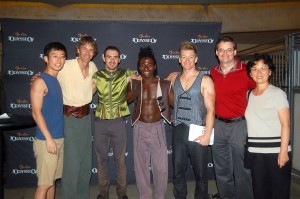
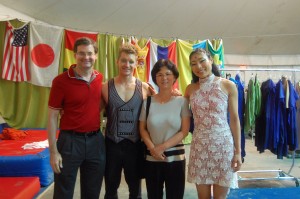
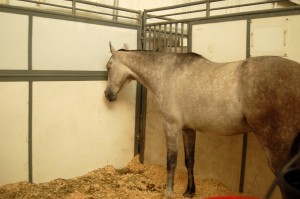
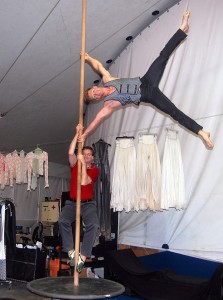
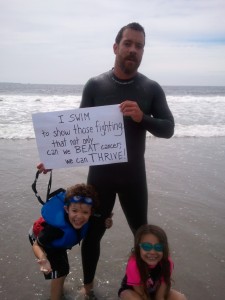




I wonder that the failure of so many “diet” cures, juice fast and intolerable low fat raw style diets have made people sceptical of “diets” for cancer.
Vegetarianism is the wrong approach. There is probably no dietary cure for most cases of cancer, but some diets are better than others.
I think all cancers could be cured (if not too advanced), if the person moves to a pristine environment (not overly exposed to man made chemicals), with a decent diet like PHD, and in company of people that will make the person happy.
I think Cancer is all about stress. And the best way to fix it is to get rid of as many stresses as possible.
Hi Paul!
Great stories, and wonderful news about the cancer clinical trials!
BTW I just found the site for Journal of Evolution and Health, and subscribed to it. Do you have a publication date for the first issue? I am eagerly looking forward to the Journal’s influence in the health care continuum!
Hi Kathy,
There is no definite date for the first issue but we’re hoping to get the first one out this winter and do 4 issues a year.
lovely stories.
i recently read that there was a woman who went thru Whole 30. & got pleasant surprised that she stopped pulling her hair. (forget the name of the OCD). maybe it was written by Dr. Emily Deans
regards,
I’m afraid that the mainstream medical establishment doesn’t really have any recommendations on diet. Some individual cancer centres, or doctors have recommendations they give, but I’ve found the diet and nutrition advice has been horrible with the main concern being “getting calories” any way the patient can. During treatment weight loss is such a concern that patients are very often told to “eat whatever they can” to get the calories.
This approach drove me crazy and I was fortunate to have previous experience with eating Paleo before I got sick and truly fine tuning my diet with PHD after.
I am amazed by the amount of people who tell me if I just ate raw food and juices that I could never get cancer as it cannot grow in the body on that diet. Of course, I ask if that is what they eat as clearly it would avoid any future trouble. The answer is always no. Sometimes it is “No, I don’t have cancer”… No comment is necessary on that one. If one is, it is this: “I know many vegetarians who have gotten cancer”…
The fact remains that PHD has helped me immensely through treatment and my blood levels regularly stunned my medical team.
From my perspective it is all about optimizing your health, regardless of your situation. Yes, you may be fighting cancer, but optimize all you can: exercise, mobility, fitness, rest, meditation…any thing you can work on. Especially nutrition…and for that, my money remains on PHD.
I have been on PHD for about a year, and I think, though this is of-course not clinically tested, the fungus on 3 of my toenails (which I have had more or less since late 20’s, I am 50!) is really starting to disappear. Not totally gone, but growing out as it were. Two supplements I ‘upped’ since being on PHD are vit C and magnesium, and take other supplements (very little actually) according to PHD recommendations.
Thanks Dutch. Shou-Ching had something like that happen too. It’s all gone now.
Hi Paul,
First, thank you very much for sharing so freely of your time and knowledge.
I have been following PHD guidelines after reading your excellent book for 6 months now. Prior to this I followed a very health conscious plant based diet for 3 years.
In general I can report feeling better – more consistent energy, etc.
As it pertains to cancer risk and the PHD approach, I have a specific question as it pertains to my risk profile, which is for Hodgkins disease.
I have been incorporating 2 pastured egg yolks daily as well as 4 ounces of liver weekly into my diet. I will have meat on bone once weekly as well, with the balance of my protein being Alaskan seafood and fish/roe. Bone broths almost daily.
I do not eat fowl or pork as these seem to be more inflammatory from a n6 perspective and have a somewhat higher correlation to lymphomas (due to viruses) in the literature.
I was recently told that lymphomas “feed” on HDL cholesterol, so I am wondering if given my specific cancer risk, it would be wise to reduce yolk consumption? More generally, I wonder if your guidelines for solid tumours are in fact not applicable to blood cancers, or if you would amend your advice for blood cancers in particular?
Thank you in advance for your consideration.
Regards, Ben
Hi Ben,
I’m glad you are feeling better.
First, I have to say I’m not very knowledgeable about blood cancers, and it is true that our advice for solid tumor cancers may be inapplicable to lymphomas.
I think, based on your description of your diet, you might be eating a bit more omega-3 than is optimal. Possibly more ruminant meats (low in polyunsaturated fat) might be good.
I’ve just searched Pubmed on the HDL-lymphoma question. It does appear that lymphoma B cells do express HDL receptors and accumulate cholesterol, leading to low HDL serum levels in lymphoma patients. In general, Hodgkins patients with higher cholesterol survive better (http://www.ncbi.nlm.nih.gov/pubmed/22457206). High serum HDL may prevent lymphoma development (http://www.ncbi.nlm.nih.gov/pmc/articles/PMC3065895/), and HDL is a good prognostic marker in lymphoma, with high HDL suggesting a good prognosis (http://www.ncbi.nlm.nih.gov/pubmed/19810145).
It is unclear to me from this brief look whether there is any evidence about causation. Thus, it’s clear lymphoma leads to low HDL, and it appears that high HDL inhibits development of lymphoma; but it is not clear whether raising HDL in someone who already has lymphoma would be beneficial or harmful.
I don’t see cutting eggs as likely to be of benefit, unless you have a sensitivity to egg protein.
If you form a view on HDL’s causal influence on lymphoma progression, you might look at our post on how to raise HDL for possible instruments, such as alcohol consumption. See http://perfecthealthdiet.com/2011/04/how-to-raise-hdl/
Not sure if that is helpful to you. Offhand, I don’t see any obvious reason to vary from normal PHD recommendations.
Thanks so much for your thoroughly research and thoughtful reply. Over the past few weeks I have been researching your links and conferring with doctors, and I have to say I agree with your conclusions. I very much appreciate you taking the time to gather this data.
I have also purchased 30 copies of your book to distribute as holiday gifts, if it can change only one person’s life it will be the best gift I could ever give.
On a related cancer note, I have been adhering to the advice for bone broth soups, actually consuming them daily. Traditional foods health enthusiasts and Chinese Medicine practitioners also support this practice for optimal health.
As you know, bone broths are a very rich source of the amino acid glycine. I have just discovered recent, prominent research that seems to indicate glycine in particular as being linked to proliferation of cancer cell lines (I presume this includes lymphomas).
http://www.sciencemag.org/content/336/6084/1040
Would this information trigger a reevaluation of the role of bone broths for cancer patients or more generally for chemo-prevention strategies in your view?
PS, on an unrelated note, you may wish to review this new lighting product by Phillips that can be adjusted for brightness and colour – your followers could use it to help entrain their circadian rhythms by creating scenes where blue light is reduced in the evening automatically and restored in the morning. I think it is an amazing light!
https://www.meethue.com
Sometimes I really feel like that horse.
Hi Ben, and Paul:
Ben I just read your posts.
I wish you well, and hope for the best for you.
Paul, if you recall, I wrote to you in the not too distant past about being diagnosed with Mgus.
I thought initially that following the PHD would result in my Mgus score (pre-cursor to blood cancers) (‘M’ spiked level) coming down.
However, unfortunately, the most recent blood test result showed that the level went up significantly, and my oncologist now said that I am on the verge of getting lymphoma, or waldenstroms.
Paul, what disappoints me was that before (2 and a half years ago) when my diet consisted mostly of vegetarian foods, my Mgus score at that time was a little high. However, after following the Paleo diet for these past two years, and incorporating meat into the diet, the most recent Mgus score was even more elevated than the original diagnosis 2.5 years ago, when I followed mostly a grains based diet.
This was very disappointing news for me, and I am now questioning some aspects of the PHD as a whole. While recognizing that perhaps the PHD would benefit quite a lot of people, perhaps, at least in my case, the old expression of moderation of all food groups might prove to be more reliable under the circumstances.
One of your readers above stated that cancer is all ‘about stress’.
I am beginning to believe that, that perhaps the best remedy for this dreaded disease is to start living, and enjoy what life has to offer, since we just don’t know when our time will be up.
Thanks,
Lawrence
Dear Lawrence, Sorry to hear what you are going through. I suggest comparing some other cancer programs to the PHD. Such as the diets developed by William DOnald Kelley, a dentist, and currently used by Dr. Nicholas Gonzalez. They have different programs for solid tumors and blood cancers. Normally you have to become a patient to receive one of these diets. However in Wellness Against the Odds by Dr. Sherry Rogers, she printed several of their diets. This book was published in 1994 and summarizes their whole program [without giving them credit for it] The program basically consists of customized diet, detoxification, and pancreatic enzymes. Best wishes, Natalie
Hi Natalie:
Thank you so very much for this.
You are so right to say that there are ‘other cancer programs’ to look into, as opposed to the PHD.
It is interesting to note, that just the other day, my Naturopathic Doctor, and health food store manager, both suggested that I look at Dr. Sherry Rogers work.
They also mentioned her book,
‘Detox or Die’.
Have you had a chance to read her book?
They also suggested I follow a ‘detox’ program by eliminating all plastics from my diet, (that is not to eat foods covered in saran wrap in stores, or plastic) drink water out of mason glass jars, as opposed to drinking out of plastic water bottles.
Further, they suggested I look into Infrared sauna treatments, as opposed to regular saunas, as a way of detoxing.
Anyways, I will for sure investigate William Kelley’s work in more detail. I took a quick look at some of his work, and it looks very interesting, and in my case, I’m willing to look into this further, particularly with what the Oncologist saying that my condition is on the ‘verge’.
The funny thing is I have been mostly on a organic diet, however, still feel that stress plays a role in our health, even if the Oncologist feels otherwise.
Natalie, my Doctor in alternative medicine, reminded me that they are in the prevention area of health, while these oncologists, and other doctors are in the industry to prescribe drugs, and more drugs.
How sad eh, that these medical doctors prey on person’s anxieties, and fears when it becomes apparent that Cancer is either in us, or about to be in us?
On a positive note, Natalie, you are a gem for suggesting for me to look into these contributors lines of work.
It is much appreciated,
Thanks again,
Lawrence
Dear Lawrence,
I agree with you that detoxification is very important. The main and most frequent method in the Kelley/Gonzalez protocol is the coffee enema. It’s really not as bad as it sounds, and Dr. Kelley found it in the Merck Manual. You can buy a bag from Nutricology in Alameda CA. It says ‘single use’ but you can actually use it for at least a month.Their patients do it twice a day using 2-4 tablespoons coffee per quart of water, but I think 2 would be better in your case since you are worried about getting one of the blood cancers. The coffee has to be organic and the water should be filtered or purified. Hope you are not too grossed out by this suggestion. They really make people feel a lot better, besides stimulating the liver via the portal circulation.
Best wishes, Natalie
Hello and thank you for this valuable site! I like the three legged approach you take to disease diagnosis/management: toxins, malnutrition, and pathogens. Where do you think trauma fits in this model? Given that trauma adds an added dimension in ill health, I wondered what your views were for cancer patients/survivors who’s symptoms are complicated by past or ongoing trauma, physical or mental, like radiation, chemo, oophorectomies, etc. Coming from a family of 3 cancer survivors out of 4 sibiling, with each having a different cancer, fatigue and returning to a state where you have energy to rebound from stressful events, are lingering issues for us. Thanks again. BTW, will you be speaking in the DC area anytime soon? -Sally